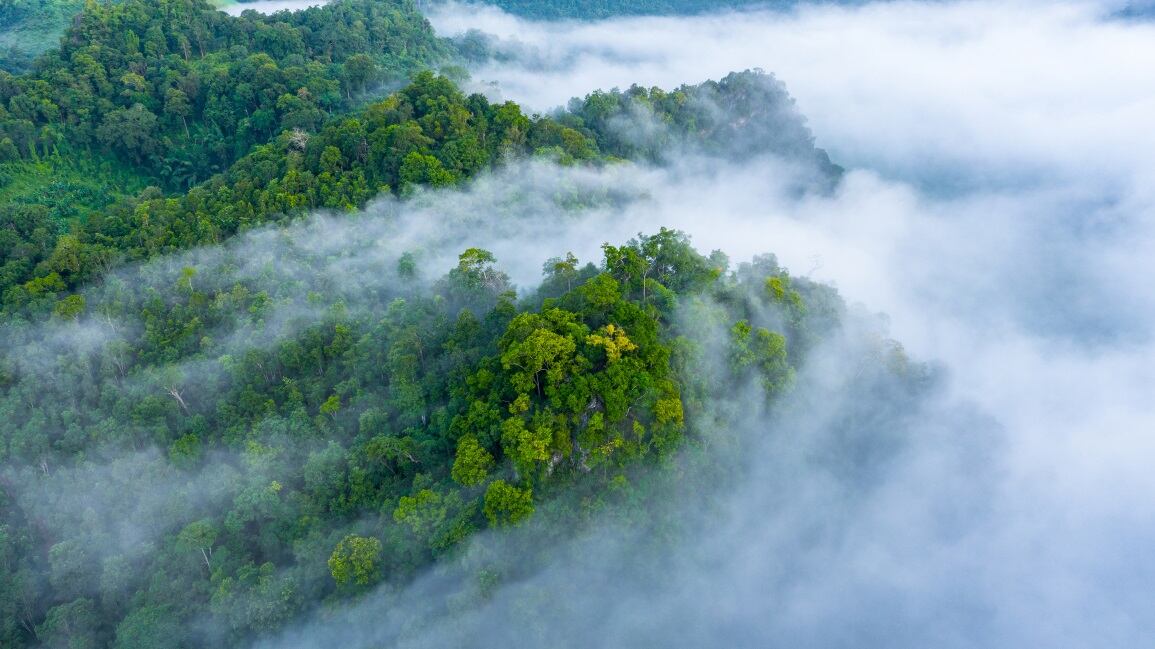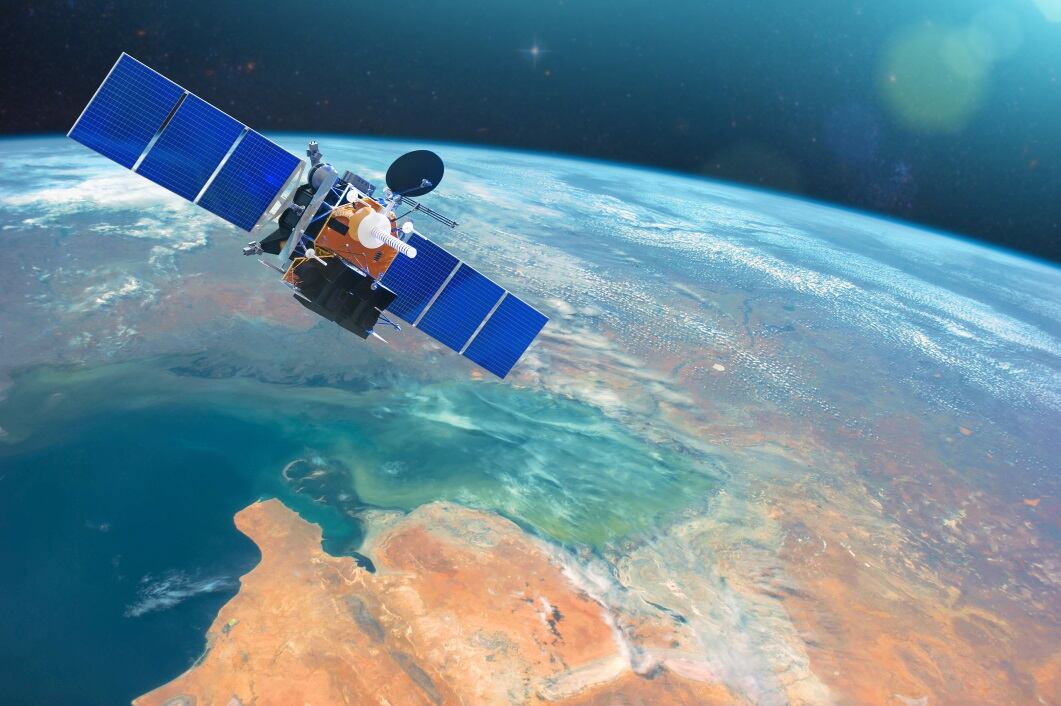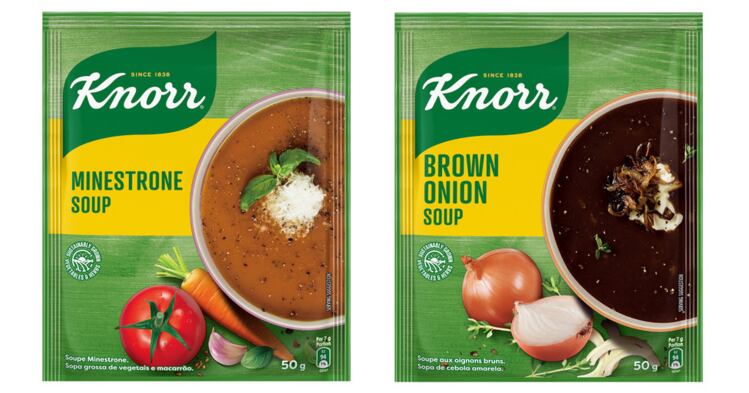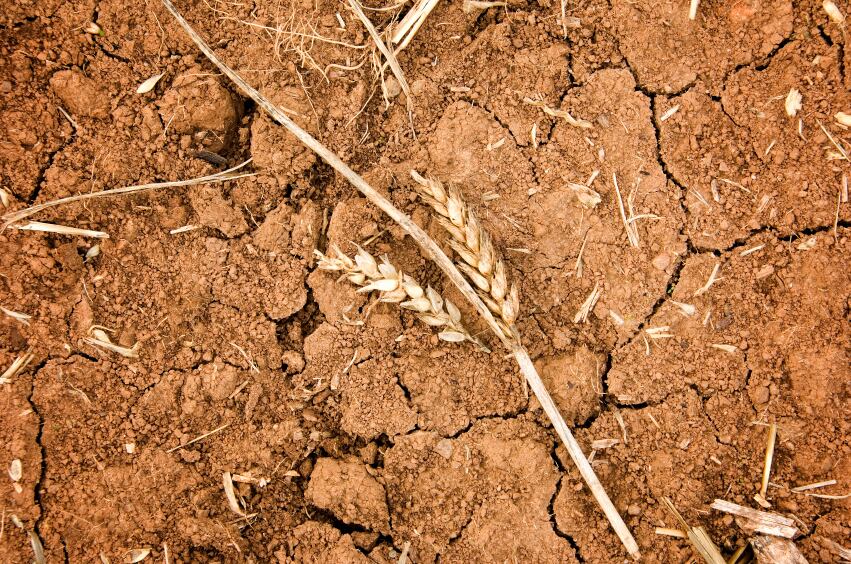Last month, CPG giant Unilever upped the anti on its already market-leading sustainability agenda when it detailed new actions to ‘fight climate change’, ‘protect and regenerate nature’ and ‘preserve resources for future generations’.
The scope of Unilever’s ambition should not be understated – but then nor should the scale of the challenged faced.
The Paris Climate Change Agreement, a landmark international deal inked in 2016, set the ambition to limit global heating to 1.5°C above pre-industrial levels. This already looks in jeopardy.
The latest forecast from the World Meteorological Organization (WMO) suggests that over the next five years there is a 24% chance the global average temperature rise will exceed 1.5°C for 'at least' one year.
While this doesn’t mean the Paris Agreement’s long-term goal will be breached, it comes as a stark reminder of the very real nature of rising temperatures and the need for urgent action.
The food system is an important piece of the puzzle.
According to a meta-analysis by Joseph Poore and Thomas Nemecek published in Science, food is responsible for 26% of global greenhouse gas (GHG) emissions. Much of this takes place at an agricultural level – livestock is linked to 31% of food emissions, crop production accounts for 27%, and land use change adds 24%. Supply chain (from processing to retail) contributes 18%.
When counting the carbon cost of our current food system, there is a strong argument that food waste should be added to the ledger. One-third of the food produced is currently wasted. If food waste were a country, it would be the world’s third largest carbon emitter, behind only the USA and China.
“Today, around two billion people globally are overweight, nearly a billion people go to bed hungry, while a third of all food produced is lost or wasted. Producing and consuming food is exhausting the earth’s resources and fuelling the climate crisis. At the same time, the COVID-19 pandemic is reminding us all of the importance of a resilient food supply chain,” Unilever Chief Procurement Officer Dave Ingram explained.
“Everyone everywhere deserves access to good food. But for people to get their fair share, the world's food system needs to change.”
Climate targets, food production and the supply chain
Unilever’s existing carbon targets were to achieve zero emissions from its own operations, and to halve the GHG footprint of its products across the value chain, by 2030. But the company recognises this is not enough.
Responding to the ‘scale and urgency of the climate crisis’ the London-headquarterd consumer goods giant said it will also achieve net zero emissions from all its products by 2039 – from the sourcing of materials to the point of sale.
“We set a net zero emissions by 2039 target, a full 11 years ahead of the Paris Agreement. We believe that all emissions across the value chain matter and we should therefore take all emissions into consideration. At Unilever, our first responsibility is for our own operations and for the raw materials and ingredients that we purchase as this is where we have the most control,” Ingram told FoodNavigator.
Given the scale and complexity of Unilever’s global supply chain, this is a daunting task. But Ingram stressed that the company isn’t coming from a standing start.
“We’ve already been working for several years to reduce our environmental impact, with some good progress made: We use 100% renewable grid electricity across our sites around the world, 25 Unilever sites are carbon neutral with several more expected to achieve this by the end of this year and 62% of our agricultural raw materials are sourced sustainably.”
To advance, Unilever will prioritise building partnerships with suppliers who have set and committed to their own science-based targets. The company also intends to strengthen its existing commitments to working with farmers and smallholders in its direct supply chain.
“We all want our food to be made in ways that are fair to others, and the planet. So, at the same time as supporting people to choose healthy, balanced diets, we strive to source our ingredients sustainably and support farmers, smallholders and others who make their livelihood from working with us,” Ingram said. “We have a world-class supply chain team who work hard every day to make this a reality.”
The Knorr-to-Magnum manufacturer's brands will collectively invest €1bn in a new Climate & Nature Fund. The cash will be used over the next ten years to take ‘meaningful and decisive action’, the company revealed.
Biodiversity, climate and deforestation

Land-use change and the expansion of current agricultural practices, with a focus on intensive farming of monocultures, are threatening what is left of the world’s biodiversity.
It’s estimated that over one-third of the planet’s ice-free land surface is dedicated to food production. The last 300 years have seen approximately 50% of natural grasslands and one-third of natural forests converted for food production. And this figure is expected to grow.
According to Dr Carlos Nobre, a senior climate scientist at the University of São Paolo, bio-diverse hotspots like the Amazon are in peril due to agricultural expansion.
“Deforestation rates increased dangerously in the last three years. Especially in the last 12 months, during which the deforestation rate in the Amazon has increased by over 40%. Deforestation rates in Colombia are also increasing. That is very worrying,” he said during a press briefing from the Intergovernmental Panel on Climate Change (IPCC).
As well as contributing to biodiversity, forests play an important role in keeping the climate in check. Forests remove a third of carbon emissions in the air each year. Protecting and expanding forests could provide an additional 25% of the mitigation needed by 2030 to keep global warming at 1.5 degrees, IPCC analysis suggests.
Already, 89% of Unilever’s forest-related commodities are certified as sustainably sourced to globally recognised standards. “However, to end deforestation, we must challenge ourselves to even higher standards,” the company said.
To raise the bar, Unilever wants to move away from the mass balance system, which it said ‘does not allow for accurate verification of deforestation-free’ when sourcing derivatives of commodities. Instead, the company wants ‘visibility on exact sourcing locations’.
Unilever said it will achieve a deforestation-free supply chain by 2023 by increasing traceability and transparency through emerging digital technologies.
“We’ve enhanced our efforts to increase traceability through emerging technologies such as satellites, geolocation, blockchain and artificial intelligence, and are working with major technology firms and start-ups to develop new approaches from which the whole industry can benefit. Only by companies coming together and using cutting-edge technology to carefully monitor our forests will we create a sustainable future,” Ingram elaborated.

Transparency: ‘Holding companies and brands to account’
Increased transparency, Ingram continued, is also a powerful tool to empower consumers to take action on the environmental issues they care about.
“To make informed, sustainable choices, as well as to hold companies and brands to account, consumers deserve full visibility. People have a right to know where the products they buy come from, and how they were made.
“We have been long committed to driving transparency and the best way to demonstrate this is by opening up our own supply chain. If we take palm oil as an example – we were the first consumer goods company to publicly disclose the palm oil suppliers, refineries and mills in our supply chain and are the only consumer goods company to publish a public grievance report so issues, such as cases of deforestation, can be identified and appropriate action taken.”
Transparency, Unilever believes, can also be used to accelerate the global race to zero emissions. To this end, the company intends to communicate the carbon footprint of ‘every product we sell’.
“To do this, we will set up a system for our suppliers to declare, on each invoice, the carbon footprint of the goods and services provided; and we will create partnerships with other businesses and organisations to standardise data collection, sharing and communication."
From preservation to restoration

Unilever also set out a plan to ‘help regenerate nature’ by increasing local biodiversity, restoring soil health, and preserving water conservation and access.
This, Unilever said, will be achieved by empowering farmers and smallholders who are committed to protecting and regenerating their farm environment. The approach echoes work already being undertaken by Unilever brand Knorr in South Africa. Alongside WWF, Unilever has partnered with smallholder farmers in the country to introduce lesser-known, drought-resistant crops into Knorr’s supply chain.
New initiatives include securing legal land rights, access to finance and financial inclusion, and development of restorative practices. These will run in parallel with Unilever’s new Regenerative Agriculture Code, which will apply to all its suppliers. The new code will include details on farming practices that help rebuild 'critical resources'.
Elsewhere, Unilever identified water security as an issue that requires urgent attention. Citing data from the World Bank, Unilever noted that already 40% of the world’s population is affected by water insecurity.
To tackle this, Unilever will implement water stewardship programmes for local communities in 100 locations by 2030. Again, the approach builds on learnings from previous initiatives – in this case Unilever’s Prabhat programme in India, which takes a ‘community approach’ to water management.
The company will also leverage its innovation might to make its products, which include home and personal care brands, biodegradable by 2030 to minimise impact on the aquatic ecosystem.

The need for collaboration
Furthering its efforts on water security, Unilever is joining the 2030 Water Resources Group, a multi-stakeholder platform hosted by the World Bank. The Group aims to contribute towards ‘transformative change’ and ‘resilience in water management’ in key water-stressed markets, such as India, Brazil, South Africa, Vietnam and Indonesia.
This is indicative of Unilever’s belief that system-wide change – at the speed needed to avert climate catastrophe – cannot be driven by business alone. It requires collaboration from all stakeholders, including industry, regulators and civil society.
“When we look at the industry more broadly, we believe that implementing the commitments outlined in the We Mean Business Coalition’s ‘Take Action Framework’ should be the priority,” Ingram told us.
“This includes setting a Science-Based Target for emissions reductions in line with the 1.5-degree ambition of Paris Agreement, switching to renewable energy, reporting climate-related financial risks and opportunities, and supporting the development of nature-based climate solutions (such as climate-smart agricultural practices and reforestation) and eliminating deforestation from commodity supply chains.”
Beyond voluntary industry codes and commitments, Unilever wants governments to act.
Ingram elaborated: “This is what we are calling for: Greater political momentum ahead of COP26, including long-term strategies from all countries for decarbonisation in line with the Paris Agreement; Better carbon pricing, and the removal of fossil fuel subsidies that drive negative carbon prices; The repurposing of existing agricultural subsidies to grow a variety of crops for a balanced diet, and support for farmers transitioning to regenerative agriculture; A more favourable policy environment for plastic waste reduction, including approval of food-grade recycled plastics, financial incentives for the right behaviours, and support for advanced recycling technologies; Better recycling infrastructure, and industry-wide action to reduce plastic use and improve waste management, including collection, in line with SDG 12 and the principles of a circular economy for plastics.
“Nothing less than a transformation is needed.”
Additional sources
'Reducing food’s environmental impacts through producers and consumers'
Science
DOI: 10.1126/science.aaq0216
Authors: J Poore & T Nemecek

